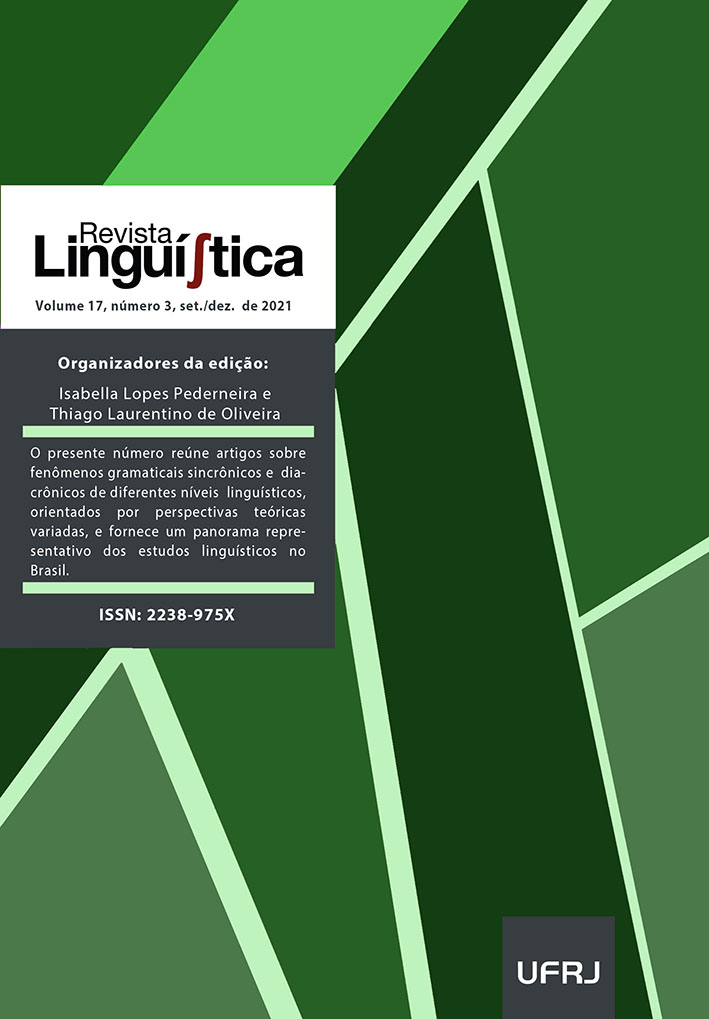A diachronic analysis of pronominal forms “contigo” and “com você” in personal letters
DOI:
https://doi.org/10.31513/linguistica.2021.v17n3a50197Keywords:
2nd person’s pronouns, address, oblique.Abstract
The paper aims to analyze the oblique alternating forms of 2nd person singular with special focus to the variation contigo ~ com você in private letters from Rio de Janeiro written from the end of 19th century and during the 20th century. As theoretical-methodological apparatus, we consider the assumptions of the historical sociolinguistics (HERNÀNDEX-CAMPOY & CONDE SILVESTRE, 2012) to the analyses of a diachronic corpus. According to the results, the alternation contigo ~ com você is more balanced than the opposition prep.+ti ~ prep.+você. Furthermore, the form contigo is predominant among missives exchanged between family members and there are indications that the form is, in the third time period analyzed, more resistant to entries from the oblique constructions of você than the other oblique strategies of the tu paradigm.
Downloads
Published
Issue
Section
License
Authors who publish in the Revista Linguí∫tica agree with the following terms:
The authors maintain their rights, ceding to the journal the right to first publication of the article, simultaneously submitted to a Creative Commons license permitting the sharing with third-parties of published content as long as it mentions the author and its first publication in the Revista Linguí∫tica.
Authors may enter into additional agreements for the non-exclusive distribution of their published work (for example, posting in online institutional or non-profit repositories, or book chapters) so long as they acknowledge its initial publication in the Revista Linguí∫tica.

The journal Revista Linguí∫tica is published by the Post-Graduate program in Linguistics of UFRJ and employs a Creative Commons - Attribution-NonCommercial 4.0 International (CC-BY-NC).









